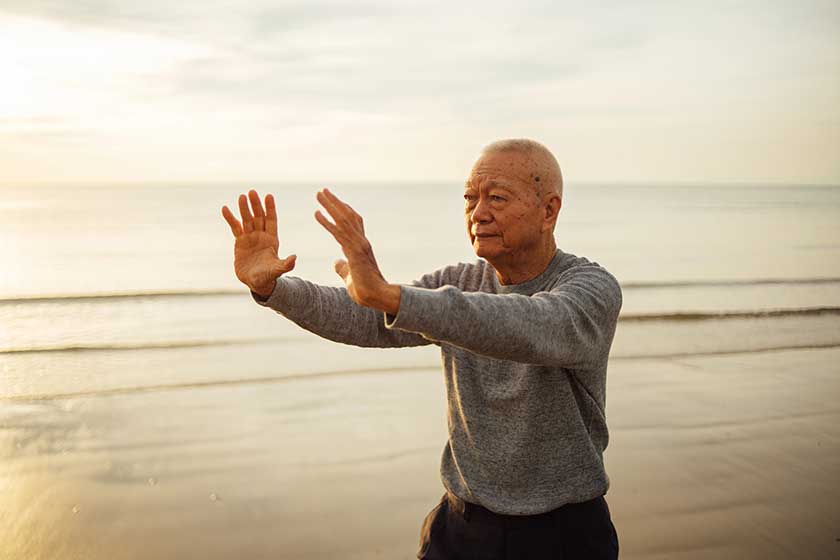Parkinson’s disease is a progressive neurological disorder that affects millions of people worldwide, with seniors being particularly vulnerable. Managing the symptoms of Parkinson’s can be challenging, but much like targeted activities, various natural relief options can offer significant benefits. These alternatives aim to complement traditional medical treatments, enhancing the quality of life for seniors with Parkinson’s. In this article, we will explore several natural approaches that can help alleviate the symptoms and improve overall well-being.
The Importance of Diet and Nutrition
-
Anti-Inflammatory Foods
A good diet plays a crucial role in managing Parkinson’s symptoms. An anti-inflammatory diet rich in fruits, vegetables, whole grains, and healthy fats can help reduce inflammation in the body, which is believed to contribute to the progression of Parkinson’s. Foods high in antioxidants, such as berries, nuts, and leafy greens, can protect brain cells from oxidative stress and support overall brain health.
-
Hydration and Fiber
Staying hydrated and consuming adequate fiber are essential for seniors with Parkinson’s, as the disease can affect digestive function. Drinking plenty of water and eating fiber-rich foods like whole grains, beans, and vegetables can help prevent constipation, a common issue among those with Parkinson’s.
Exercise and Physical Activity
-
Gentle Exercises
Regular physical activity is beneficial for managing Parkinson’s symptoms. Gentle exercises such as walking, swimming, and tai chi can improve flexibility, balance, and muscle strength. These activities also help reduce stiffness and improve overall mobility, making daily tasks easier for seniors with Parkinson’s.
-
Specialized Exercise Programs
There are also specialized exercise programs designed specifically for individuals with Parkinson’s. Programs like Parkinson’s-specific yoga or dance classes can help improve motor skills, coordination, and overall fitness. Senior Assisted Living communities often offer various on-site amenities to facilitate such activities. Participating in these programs can also provide social interaction, which is beneficial for mental health.
Stress Management and Mental Health
-
Mindfulness and Meditation
Managing stress is crucial for seniors with Parkinson’s, as stress can exacerbate symptoms. Mindfulness and meditation practices can help reduce stress levels and promote relaxation. Techniques such as deep breathing, guided imagery, and progressive muscle relaxation can be incorporated into daily routines to enhance mental well-being.
-
Support Groups
Joining a support group can provide emotional relief and a sense of community for seniors with Parkinson’s. Sharing experiences and coping strategies with others who understand the challenges of the disease can be incredibly comforting and empowering. Support groups can also provide valuable information about managing symptoms and accessing resources.
Complementary Therapies
-
Massage Therapy
Massage therapy can offer significant relief for seniors with Parkinson’s by reducing muscle stiffness and promoting relaxation. Regular massages can improve circulation, flexibility, and overall comfort. It is essential to seek a massage therapist experienced in working with individuals with neurological conditions to ensure the therapy is safe and effective.
-
Acupuncture
Acupuncture, an ancient Chinese therapy, involves inserting thin needles into specific points on the body to balance energy flow. Some studies suggest that acupuncture can help alleviate symptoms such as tremors, stiffness, and pain in seniors with Parkinson’s. Consulting with a licensed acupuncturist can help determine if this therapy is suitable and beneficial for individual needs.
Herbal Supplements
-
Turmeric and Ginger
Certain herbal supplements, such as turmeric and ginger, have anti-inflammatory properties that may benefit seniors with Parkinson’s. Turmeric contains curcumin, which has been shown to reduce inflammation and protect brain cells. Ginger can also help with digestion and reduce nausea, a common side effect of Parkinson’s medications.
Before incorporating any herbal supplements, it is crucial to consult with healthcare providers. They can provide guidance on appropriate dosages and ensure that supplements do not interact with prescribed medications.
Ultimately, the journey with Parkinson’s can be made more manageable and enriching through these thoughtful, natural approaches. These natural methods not only address physical well-being but also cater to the emotional and mental health of seniors with Parkinson’s. By fostering a supportive environment that includes mindful practices, enriching activities, and balanced nutrition, loved ones can significantly enhance their quality of life.







